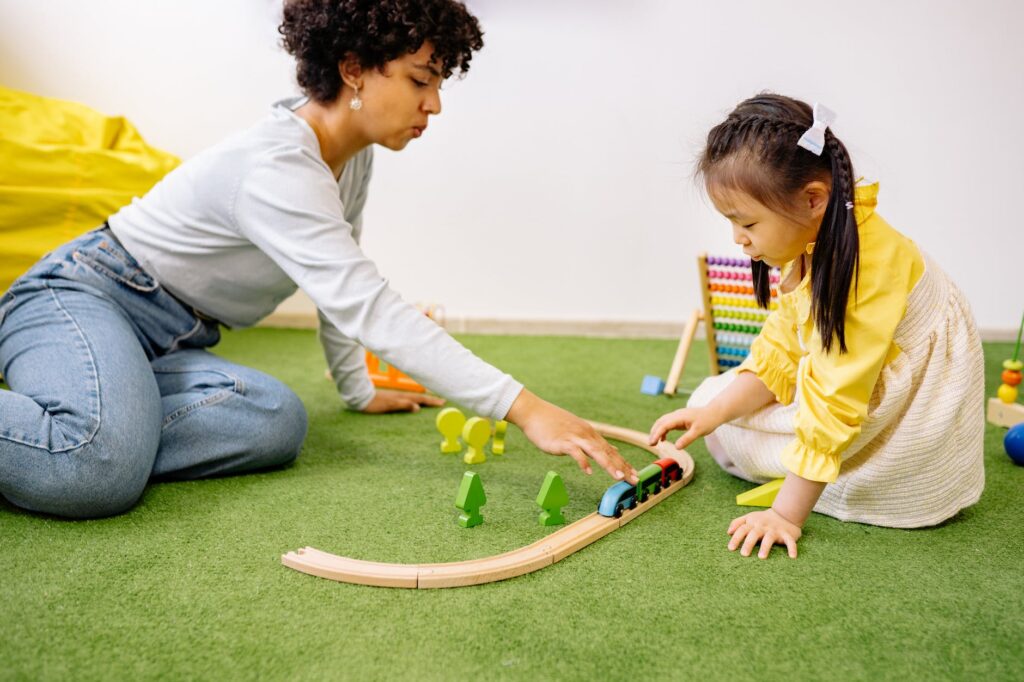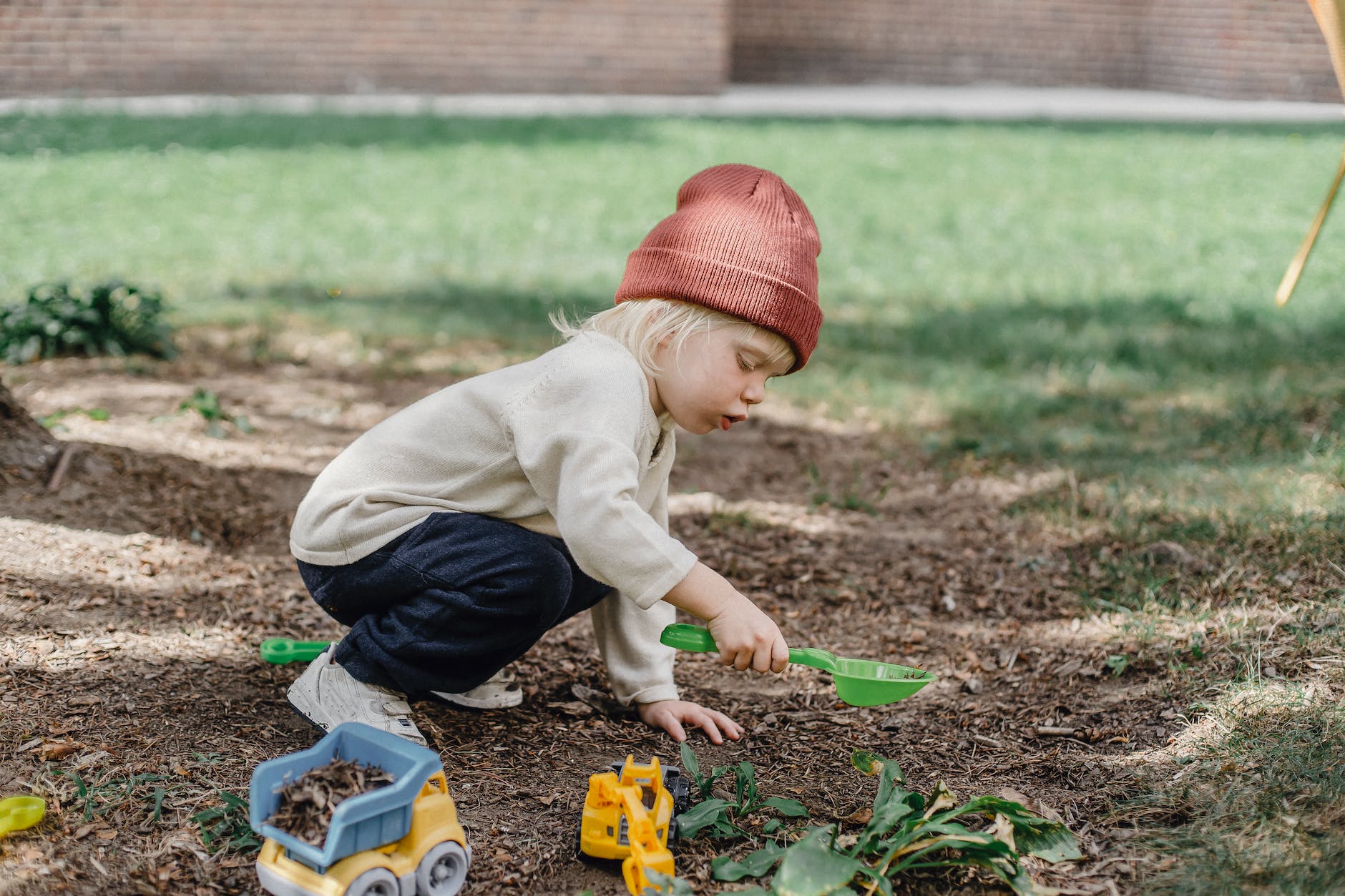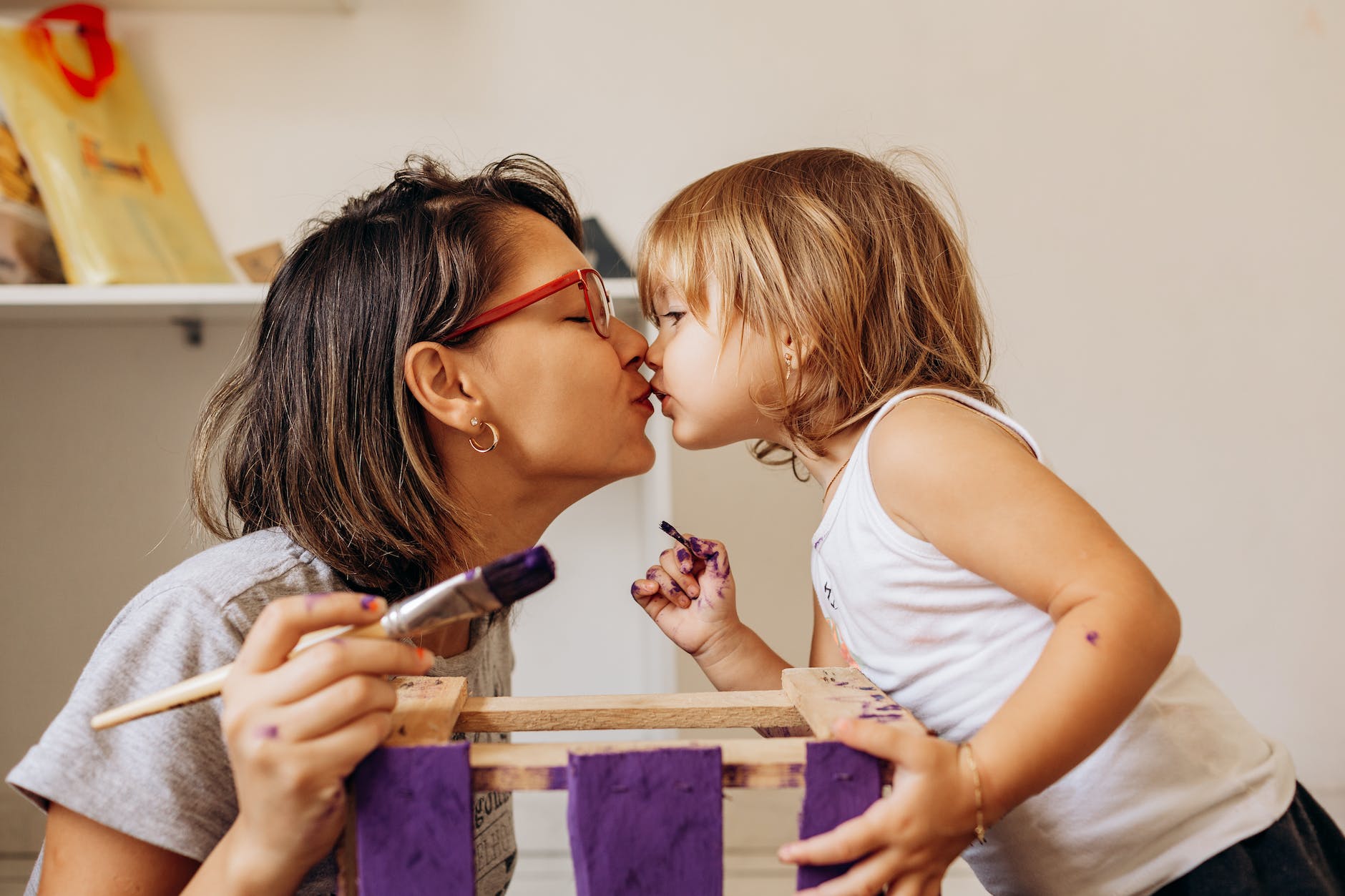
Floortime, also referred to as DIRFloortime®, is an approach dedicated to fostering an individual’s development through a respectful, playful, and engaging process. Grounded in the DIR® model for human development, it harnesses the power of relationships and human connection to promote the growth of self-regulation, engagement, communication, shared social problem-solving, and creative, organized, and reflective thinking. Widely adopted globally by educators, occupational therapists, speech therapists, mental health professionals, parents, and others caring for individuals with developmental challenges, it serves as an evidence-based method applicable to individuals of all ages, particularly children on the autism spectrum.

Learning first occurs as a part of emotional interactions; it involves the split-second initiatives that children take as they try to engage other people,interact with them communicate and reason with them.
Dr Stanley Greenspan
The objectives of the DIR® Model are to build healthy foundations for social, emotional, and intellectual capacities rather than focusing exclusively on skills and isolated behaviors. DIR is the Developmental, Individual-differences, and relationship-based model (pronounced by saying each letter as an initialism: D.I.R.). It was developed by Dr. Stanley Greenspan to provide a foundational framework for understanding human development. It explains the critical role of social-emotional development starting at birth and continuing throughout the lifespan. It also provides a framework for understanding how each person individually perceives and interacts with the world differently. The model highlights the power of relationships and emotional connections to fuel development. Through a deep understanding of the “D” and the “I” we can use the “R” to promote healthy development and to help every child and person reach their fullest potential. It is a pathway to promote healthy development in a respectful manner that builds connections, understanding, love, communication, and engagement.

Development
The “D” describes the development from the perspective of the individual, where they are, and where they are headed. Understanding the unique developmental process means allowing space for each person to be respected and guided in his or his own personal developmental journey.

Individual Differences
The “I” describes the unique ways each person takes in, regulates, responds to, and comprehends the world around them.

Relationship
The “R” describes how relationships fuel our development. Humans are social beings and relationships are a key to our human development. DIR harnesses the key affective (emotional) aspect of these relationships to promote development.
Understanding DIR can help us promote healthy development in all children, but it is especially powerful in helping children on the autism spectrum or with other developmental or emotional challenges.
Functional Emotional Developmental Capacities
The foundation for all our learning and development is built upon six fundamental developmental capacities, which are also referred to as stages, milestones, or levels. These capacities serve as the basis for all our learning and growth. Typically, children without special needs acquire these skills relatively easily. Conversely, children facing challenges may struggle not necessarily due to their inability, but rather because their biological difficulties make achieving mastery more challenging. By comprehending these skills, understanding the influencing factors, and directly addressing them, caregivers, educators, and therapists can often assist even those children with presumed chronic disorders in attaining proficiency in many of these capacities. Adequate emotional experiences during each of the six developmental aspects play a crucial role in fostering essential cognitive, social, emotional, language, and motor skills, as well as nurturing a sense of self.
Stage 1: Self-Regulation and Interest in the World – Discovering your Child’s Sensory and Motor Profile.
Stage 2: Engagement & Falling in Love – Following your child’s lead, regardless of where his or his interest lies.
Stage 3: Opening and Closing Circles of Communication – Encouraging two-way Communication.
Stage 4: Complex Communication and Problem Solving – Complex gestural conversation builds motor and motor planning skills.
Stage 5: Using Symbols and Creating Emotional Ideas – In this stage, our objective is to nurture a child’s emotional and cognitive growth, enabling them to articulate and explore their thoughts and feelings on a deeper level. Moreover, we aim to expand the spectrum of emotions they encounter. The child will participate in play activities revolving around diverse emotional themes, spanning a total of nine categories.
Stage 6: Logical Thinking and Building Bridges Between Ideas – In this phase, the child synthesizes various elements, establishing connections between ideas, feelings, and expressions. They begin to grasp personal and emotional concepts of space and time, utilizing these insights to solve spatial and verbal problems. Additionally, the child initiates questioning by asking “Why” during this developmental stage.
Additional resources and information:
– https://www.icdl.com/
– https://www.icdl.com/research
– https://www.icdl.com/dir/floortime
Tel: (65) 8298 4508
Email: sproutandsprint@gmail.com
Biz Reg Number: UEN 53464972J

DIRFloortime® Practitioner
Denise is a DIRFloortime® Practitioner (DIR-Basic) with a specialization in Sensory Integration and Developmental Play. Her approach combines the DIRFloortime methodology with developmental play strategies and sensory integration techniques. Denise holds a Bachelor’s degree with honors in Psychology from the University of Sussex.
With years of experience, Denise has worked extensively with individuals on the autism spectrum, those with sensory processing difficulties, and learning challenges. She is deeply committed to seeing beyond the surface and believes in the inherent potential of every child, embracing the philosophy, “If a child could, they would.”
Denise has furthered her expertise through various courses, including those from the Maude Le Roux Academy, Developmental Play by CreateCatt, and other programs focused on learning challenges, sensory, play, and emotional processes.

Advisory Partner
Maude Le Roux is an occupational therapist with an extensive following of professionals across the globe. She studies human development in different capacities of growth, spanning ages and stages, neuroanatomy, assessment tools as well as current trends of intervention. She completed her DIR/Floortime® certificate in 2005 and has been an Expert Training Leader for ICDL since 2011. She owns and directs a clinical practice in Glen Mills, PA, where she has become known for her effective assessment and intervention protocol. While she trains globally, Maude continues to operate this active practice to continue to inform her work and develop the case studies from which she expands her assessment and intervention protocol. She co-authored the book “Our Greatest Allies” in 2011 with Lauren O’Malley describing the journey of one child and also describing the DIR/Floortime® Method.

Training Director
James Ho is a certified DIR® Advanced Trainer and specializes in Sensory Integration. He combines the approach of DIR Floortime and play as well as the practice of Sensory Integration as a basis of his work as he strongly believes that learning happens best when the child is having fun. James is also a certified Tomatis Consultant. James graduated from Murdoch University with a Bachelor’s in Psychology and has over 10 years of experience working with children, teens, and adults on the Autism Spectrum as well as those with sensory processing challenges and learning challenges and difficulties. His passion and drive had allowed him to be chosen to manage and coordinate a branch in Jakarta, where he would supervise and train a team of staff. His responsibility also includes conducting reviews with parents and working with them through coaching and giving them advice on parents’ engagement in supporting the child’s ability to partake in his or her learning environment. James is trained and mentored under international trainer, Maude Le Roux, OTR/L, SIPT, RCTC, who is a DIR® Expert Trainer, Certified Tomatis Practitioner, and a consultant. He has also attended various courses with Maude Le Roux Academy. James has attended workshops in understanding the mental health developmental structures as they relate to playing and emotional processes.